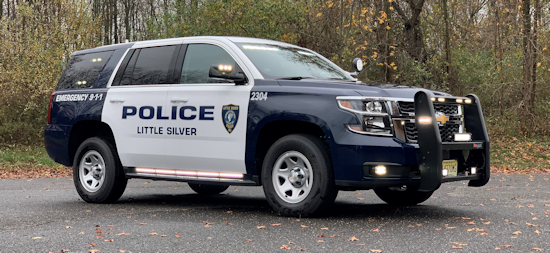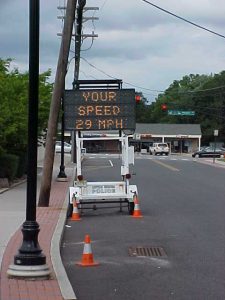The Communications Division function is to receive incoming calls for service and dispatch the appropriate units to the call for service (i.e., Police, Fire, and EMS). The division is staffed with four full time and numerous part time Telecommunication Operators. The Telecommunications Operators perform several important tasks including the handling of both emergency and non-emergency calls for service, the dispatching and monitoring of Police, Fire and Emergency Medical Services (EMS) within the Borough.
The primary function of CID is to conduct follow-up investigations of reported crimes. These investigations consist of interviewing suspects, victims, and witnesses; analyzing information for validity, reliability, and accuracy; and compiling a comprehensive and factual case file to be presented in court.
CID is also tasked with crime analysis, surveillance in areas of criminal activity, monitoring and maintenance of registered sex and drug offenders, narcotics investigations, and background investigations for alcohol, massage, and firearms applicants. They are also responsible for the receiving, processing, storing and purging of property/evidence collected by officers during the course of their duties. The integrity of the chain-of-custody and the integrity of the evidence/property room are critical for the successful prosecution of criminal cases.
The Department’s Juvenile Bureau is committed to the advancement and development of the Borough’s younger population. Officers Smith and Massaro are available to help solve and prevent juvenile crimes. They are also able to assist parents with children-in-crisis or family-in-crisis situations. Officer Massaro currently serves as the Red Bank Regional High School Resource Officer and is certified by the NJASRO as a School Resource Officer.
The School Resource Officer (SRO) program places law enforcement officers in schools with the goal of creating and maintaining safe, secure, and orderly learning environments for students, teachers, and staff. An SRO program reflects a community’s desire to ensure that its schools are safe, secure, and orderly. SROs represent a proactive strategy designed to bring prevention and intervention into the schools.
Aside from investigating juvenile matters, members of our Juvenile Bureau do the following:
- Serve as officer, educator, and mentor of Little Silver youth.
- Investigate crimes and acts of delinquency involving juveniles as victims and as offenders.
- Administer the LEAD substance abuse resistance training for all Township middle schools.
- Observe, assist, and critique during mandated school safety drills and table-top exercises including fire drills, bomb scare drills, evacuation drills, active shooter drills, and lockdown drills.
- Participate in the Harassment, Intimidation, and Bullying (HIB) meetings at all schools within the district.
- Perform in-classroom instruction and education regarding bullying, peer pressure, social norms, and prevalent crime trends.
- Conduct one-on-one counseling with students at-risk for committing offenses related to delinquency or criminal activity.
- Educate school management and staff regarding up-to-date search and seizure rules for non-law enforcement personnel (NJ v. T.L.O.).
- Ensure that the Memorandum of Agreement (MOA) between the Little Silver/Red Bank Regional Board of Education and Police Department is current, compliant, and used effectively.
- Make notifications to school officials in accordance with N.J.S.A. 2A:4A-50 (mandatory and discretionary circumstances).
- Facilitate Stationhouse Adjustment programs.
The Juvenile Bureau personnel always work closely with the Borough schools, especially Red Bank Regional High School. Presentations are continually being made to students about different aspects of law enforcement, and a peer development program has been established wherein students can speak candidly and openly with juvenile officers about any issues that concern them.
 The Patrol Division is the face of the Department. Uniformed officers operate marked radio cars twenty-four hours a day, seven days a week throughout the borough. The vast majority of citizen/police encounters involve a patrol officer. They are responsible for responding as a first responder to all calls for service. Whether an in-progress crime, alarm, medical call, fire call, motor vehicle crash, civil dispute, disorderly person, domestic disturbance, after-the-fact crime reporting or EDP/mental health crisis, uniformed patrol officers are sent as the initial resource of the Department. The patrol officers are responsible for assessing the situation, requesting necessary additional resources, controlling and mitigating the immediate emergency and reporting on the incident. In cases of criminal and motor vehicle investigations, the patrol officer will document the initial report for follow up by an investigator from other divisions within the Department. Equally as important as the Patrol Division response to calls for service are their crime prevention patrol strategies.
The Patrol Division is the face of the Department. Uniformed officers operate marked radio cars twenty-four hours a day, seven days a week throughout the borough. The vast majority of citizen/police encounters involve a patrol officer. They are responsible for responding as a first responder to all calls for service. Whether an in-progress crime, alarm, medical call, fire call, motor vehicle crash, civil dispute, disorderly person, domestic disturbance, after-the-fact crime reporting or EDP/mental health crisis, uniformed patrol officers are sent as the initial resource of the Department. The patrol officers are responsible for assessing the situation, requesting necessary additional resources, controlling and mitigating the immediate emergency and reporting on the incident. In cases of criminal and motor vehicle investigations, the patrol officer will document the initial report for follow up by an investigator from other divisions within the Department. Equally as important as the Patrol Division response to calls for service are their crime prevention patrol strategies.
The Little Silver Police Department prides itself as being a proactive municipal law enforcement agency. Over half of all activity conducted by our patrol officers are self-initiated, preventative patrol activities.
The Police Records Division is responsible for maintaining and updating department records and files.
Requests made for information through the Open Public Records Act requests are handled according to the guidelines set by the Monmouth County Prosecutor’s Office.
Requests for public records and police reports can be made through our records clerk. These reports are prepared on a criminal court priority basis. The time for a report to be completed, reviewed, and made available for release may vary. Please be patient when requesting records as some requests may require seeking information from years ago and may be archived in a secure storage area. You should also be aware that some reports, records, or specific information on reports may be restricted from public access or examination. Our department will comply with the Open Public Records Act. Some information on reports may be redacted (blacked out).
Our Records Bureau is available to serve you five days a week:
Monday – Wednesday 8:00AM – 4:00PM
Thursday 8:00AM-7:00PM
Friday 8:00AM-12:00PM
(Closed on Holidays)
 The Traffic Bureau’s responsibility is to provide professional traffic safety services within the Borough of Little Silver. These efforts are accomplished through education, technology and enforcement. It is the philosophy of the Department that in order to reduce incidents of impaired or dangerous driving, we have to change behavior and guide people to make the right decisions. This type of change requires time and a sustained effort. We believe that combining both education and an unwavering enforcement effort to hold people accountable for their actions is effective in reaching our goal. Our department has made remarkable advancements towards our goal of zero deaths on our roadways. The Traffic Bureau has implemented cutting-edge technology in the form of electronic summonses and data gathering software. We continue to be heavily involved in educational efforts that are geared not only towards combating impaired driving at the adult level, but at teen drivers as well. We recognize that although it is extremely important to educate drivers on the dangers of impaired driving, we also understand that it is equally important to focus on the hazards of distracted driving and the importance of keeping all vehicle occupants safe. To this end, the Traffic Bureau devotes countless hours to educating our drivers on the importance of not allowing anything to distract them while driving, the proper installation of safety seats, and the proper use of seatbelts.
The Traffic Bureau’s responsibility is to provide professional traffic safety services within the Borough of Little Silver. These efforts are accomplished through education, technology and enforcement. It is the philosophy of the Department that in order to reduce incidents of impaired or dangerous driving, we have to change behavior and guide people to make the right decisions. This type of change requires time and a sustained effort. We believe that combining both education and an unwavering enforcement effort to hold people accountable for their actions is effective in reaching our goal. Our department has made remarkable advancements towards our goal of zero deaths on our roadways. The Traffic Bureau has implemented cutting-edge technology in the form of electronic summonses and data gathering software. We continue to be heavily involved in educational efforts that are geared not only towards combating impaired driving at the adult level, but at teen drivers as well. We recognize that although it is extremely important to educate drivers on the dangers of impaired driving, we also understand that it is equally important to focus on the hazards of distracted driving and the importance of keeping all vehicle occupants safe. To this end, the Traffic Bureau devotes countless hours to educating our drivers on the importance of not allowing anything to distract them while driving, the proper installation of safety seats, and the proper use of seatbelts.
 In addition, some of the other duties of the Traffic Bureau include: investigation of all serious/fatal motor vehicle crashes; traffic control signage, striping and lighting; vehicle and bicycle impounds/recoveries; work zone safety; site plan reviews; grant management; funeral escorts; parking ticket administration; and the assignments of the 13 school crossing guards for the Borough’s school system.
In addition, some of the other duties of the Traffic Bureau include: investigation of all serious/fatal motor vehicle crashes; traffic control signage, striping and lighting; vehicle and bicycle impounds/recoveries; work zone safety; site plan reviews; grant management; funeral escorts; parking ticket administration; and the assignments of the 13 school crossing guards for the Borough’s school system.
Any traffic related concerns, please email trafficsafety@littlesilverpolice.org.
It is the policy of the Little Silver Police Department to deal with the immigrant community in compliance with New Jersey Attorney General Directive 2018-6. This department’s responsibilities are limited to certifying that an alien, who is or was the victim of a qualifying crime in Little Silver, is, has or will cooperate with the investigation and/or prosecution of such crime. The following details the policy of the Little Silver Police Department with respect to U & T Visa Applications:
Non-citizens may be eligible for a U visa if:
- They are the victims of qualifying criminal activity;
- They have suffered substantial physical or mental abuse as a result of having been a victim of criminal activity;
- They have information about the criminal activity;
- They were helpful, are helpful, or are likely to be helpful to law enforcement in the investigation or prosecution of the crime;
- The crime occurred in the United States or violated U.S. laws.
- He/she is admissible to the United States. If not admissible, an individual may apply for a waiver on a Form I-192, Application for Advance Permission to Enter as a Non-Immigrant.
- If the person is under the age of 16 or unable to provide information due to a disability, a parent, guardian, or friend may assist law enforcement on your behalf.
- NOTE: Given the complexity of U visa petitions, petitioners often work with a legal representative or a victim advocate.
If an individual believes he/she may qualify for a U visa, then he/she or his/her representative will complete a USCIS Form I-918, Petition for U Nonimmigrant Status (Form I-918) and submit it to U.S. Citizenship and Immigration Services (USCIS) with all relevant documentation, including a USCIS Form I-918B U Visa Law Enforcement Certification (Form I-918B).
Aliens or their representatives seeking certification for a U visa shall be referred to the Detective Bureau. The assigned detective will cause an inquiry into the matter to determine if the alien has been:
- A victim of a qualifying crime under the jurisdiction of this department;
- Has specific knowledge and details of crime; and
- Has been, is being, or is likely to be helpful to law enforcement in the detection, investigation, or prosecution of the qualifying crime
Aliens or their representatives seeking certification for crimes occurring outside the jurisdiction of Little Silver shall be referred to the local jurisdiction or the county prosecutor’s office in which the crime occurred.
The assigned detective shall assign the inquiry a case number in CAD/RMS.
Upon determining that the alien has satisfied the above requirements, the assigned detective shall execute Form I-918, Supplement B, U Nonimmigrant Status Certification.
The completed form shall be forwarded to the Chief of Police or his/her designee for signature.
The original fully executed form shall be returned to the applicant or his/her representative; and
The assigned detective shall forward a copy to the records bureau to be maintained in the case file.
The Chief of Police or his/her designee may withdraw or disavow a Form I-918B at any time if a victim stops cooperating. The assigned detective must notify the USCIS Vermont Service Center in writing (including as an email attachment) at:
LawEnforcement_UTVAWA.vsc@uscis.dhs.gov; or mail to:
USCIS—Vermont Service Center ATTN: Division 6, 75 Lower Welden Street St. Albans, VT 05479
If the assigned detective determines that USCIS should know something particular about a victim’s criminal history, that information can be cited on the certification or with an attached report or statement detailing the victim’s criminal history with that law enforcement agency or his/her involvement in the crime.
Such written notification regarding withdrawal or disavowal must include:
- This department’s name and contact information (if not included in the letterhead);
- The name and date of birth of the individual certified;
- The name of the individual who signed the certification and the date it was signed;
- The reason the department is withdrawing/disavowing the certification including information describing how the victim’s refusal to cooperate in the case is unreasonable;
- The signature and title of the official who is withdrawing/ disavowing the certification; and
- A copy of the signed initial certification.
Non-citizens may be eligible for a T Visas if:
- Is or has been a victim of a severe form of trafficking in persons (which may include sex or labor trafficking); and
- Is in the United States due to trafficking;
- Has complied with requests for assistance in an investigation or prosecution of the crime of trafficking; and
- Would suffer extreme hardship involving unusual and severe harm if removed from the United States.
The T visa declaration is supplementary evidence of a victim’s assistance to law enforcement that an official can complete for a T visa applicant. The declaration must be provided on Form I-914, Supplement B, and instructions are available on the USCIS website at https://www.uscis.gov/i-914
Detectives will process T Visas in the same way as U Visas.
